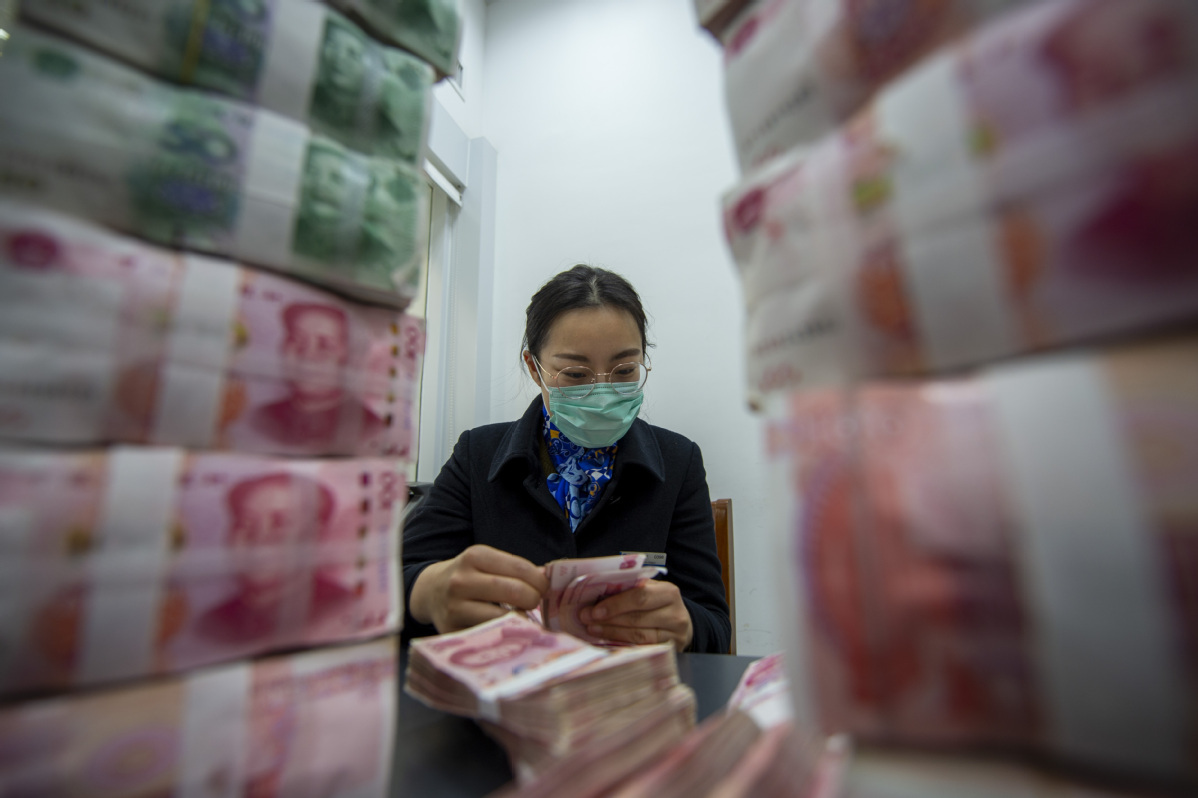
A clerk counts cash at a bank branch in Haian, Jiangsu province.(Photo: Agencies)
At a conference on Monday, the financial stability and development committee under the State Council, China's Cabinet, pointed out that the country should seriously look into the risks of some financial products caused by price fluctuations in the international commodity market, raise risk awareness and strengthen risk control in a bid to protect the legitimate interests of investors.
With the novel coronavirus outbreak continuing to impact the economy, the top financial regulator's statement is possibly aimed at the huge losses suffered by those who invested in Bank of China's crude oil trading products.
The US crude oil futures collapsed on April 20, with the US benchmark West Texas Intermediate for May delivery settling at-$37.63(-266.77 yuan) a barrel. Affected investors in the BOC crude oil trading products not only lost their original capital, but also owed the bank 1 to 2 times that amount of money. The overall losses suffered by more than 60,000 investors were no less than 9 billion yuan.
This financial incident rings an alarm bell for us. With the acceleration of the internationalization process of China's financial market in recent years, the enthusiasm of financial institutions such as banks and insurance companies to participate in the international market has been rising, and the financial products available to investors have also become increasingly diversified. However, compared with the international financial market, which has developed over hundreds of years and has in place a fairly mature mechanism, both domestic financial institutions and local investors are much less experienced. Those investing into the BOC's crude oil trading products possibly thought the biggest risk was losing their investment; few imagined they would end up owing the bank money.
According to a survey, more than 90 percent of the BOC crude oil investors are novices, many of them buying such products only in March. Therefore, in the process of financial globalization, improving the professional capacity of financial institutions, strengthening their risk prevention and control mechanism and paying more attention to investor protection have become particularly important.
Global financial integration is an inevitable choice of world economic and financial development. However, it should be noted that financial globalization has brought both potential benefits and risks that cannot be ignored for the development of Chinese financial institutions. While participating in the global market and enjoying global capital allocation, Chinese financial institutions should try to protect their own interests and strengthen the protection of investors as much as possible.


